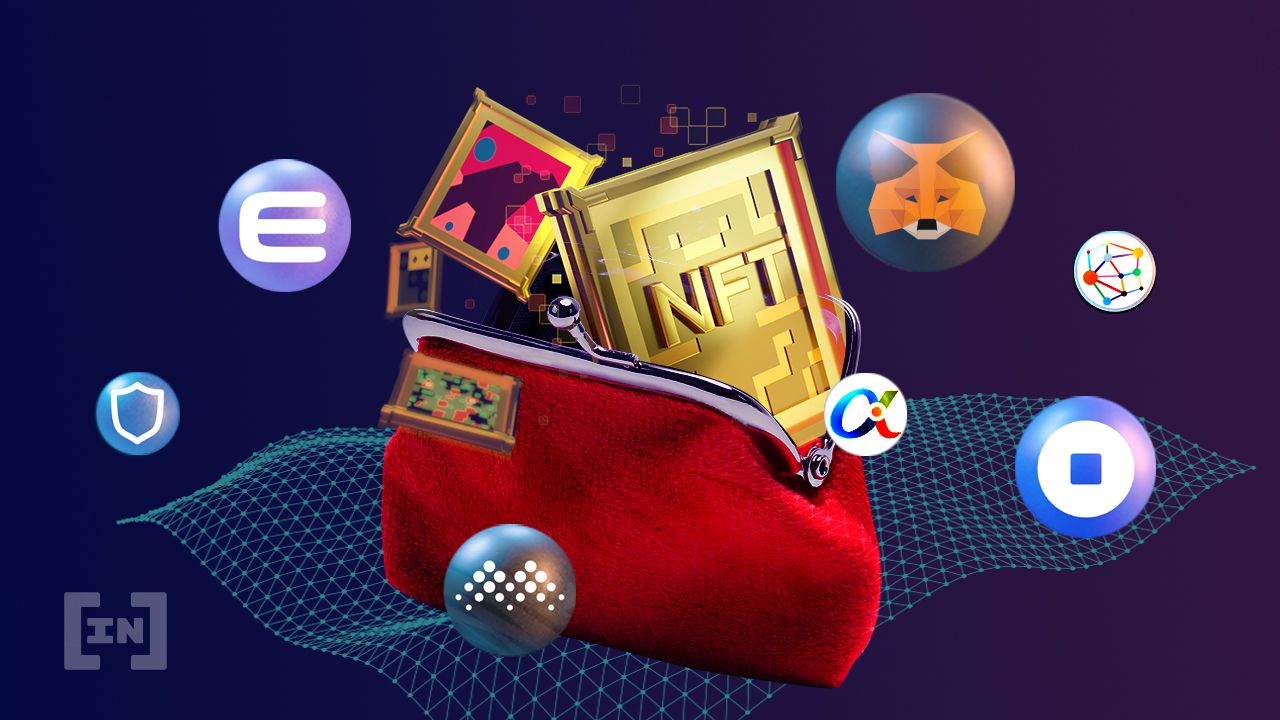“NFT Wallets: Your Gateway to the World of Digital Collectibles
Artikel Terkait NFT Wallets: Your Gateway to the World of Digital Collectibles
- Okay, Here’s A Comprehensive Article About NFTs (Non-Fungible Tokens), Aiming For Approximately 1600 Words.
- NFT Drops: A Comprehensive Guide
- NFT Marketplaces: A Comprehensive Guide To Buying, Selling, And Trading Digital Assets
- NFT Utility: Beyond The Hype – Real-World Applications And The Future Of Non-Fungible Tokens
- The Rise Of The NFT Profile Picture: Identity, Community, And Digital Ownership
Table of Content
Video tentang NFT Wallets: Your Gateway to the World of Digital Collectibles
NFT Wallets: Your Gateway to the World of Digital Collectibles

In the burgeoning landscape of non-fungible tokens (NFTs), a secure and user-friendly wallet is indispensable. An NFT wallet serves as your digital vault, enabling you to store, manage, and transact with your unique digital assets. This article delves into the intricacies of NFT wallets, exploring their functionality, security features, types, and best practices for safeguarding your valuable collectibles.
What is an NFT Wallet?
At its core, an NFT wallet is a specialized digital wallet designed to hold and manage non-fungible tokens. Unlike cryptocurrency wallets that store fungible tokens like Bitcoin or Ethereum, NFT wallets are equipped to handle the unique characteristics of NFTs. Each NFT represents a distinct asset, such as digital art, music, virtual real estate, or collectibles.
An NFT wallet does not actually store the NFT itself. Instead, it stores the private keys that control access to the NFT on the blockchain. The NFT’s metadata (information about the asset) and ownership details are recorded on the blockchain, and the wallet provides a user-friendly interface to interact with this data.
Key Functions of an NFT Wallet:
- Secure Storage: The primary function of an NFT wallet is to provide a secure environment for storing the private keys that control your NFTs. These keys are essential for proving ownership and authorizing transactions.
- NFT Management: NFT wallets allow you to view, organize, and manage your NFT collection. You can see the details of each NFT, including its name, description, and associated metadata.
- Transaction Capabilities: NFT wallets enable you to send and receive NFTs, as well as buy and sell them on NFT marketplaces.
- Blockchain Interaction: The wallet acts as a bridge between you and the blockchain, allowing you to interact with smart contracts and verify NFT ownership.
- DApp Integration: Many NFT wallets seamlessly integrate with decentralized applications (DApps) and NFT marketplaces, providing a convenient way to explore and participate in the NFT ecosystem.

Security Considerations for NFT Wallets:
Security is paramount when dealing with NFTs, as these digital assets can be highly valuable. NFT wallets employ various security measures to protect your private keys and NFTs from unauthorized access.
- Private Key Encryption: NFT wallets encrypt your private keys using strong encryption algorithms. This ensures that even if your wallet is compromised, the private keys remain protected.
- Two-Factor Authentication (2FA): 2FA adds an extra layer of security by requiring a second verification method, such as a code sent to your mobile device, in addition to your password.
- Biometric Authentication: Some NFT wallets offer biometric authentication, such as fingerprint or facial recognition, for added security and convenience.
- Hardware Wallet Support: Hardware wallets are physical devices that store your private keys offline, providing the highest level of security against hacking and malware.
- Regular Security Audits: Reputable NFT wallet providers conduct regular security audits to identify and address potential vulnerabilities.


Types of NFT Wallets:
NFT wallets come in various forms, each with its own advantages and disadvantages. The most common types include:
- Software Wallets (Hot Wallets):
- Browser Extension Wallets: These wallets are installed as browser extensions, providing easy access to your NFTs while browsing the web. Examples include MetaMask, Phantom, and Coinbase Wallet.
- Pros: Convenient, easy to use, widely supported by DApps and marketplaces.
- Cons: Less secure than hardware wallets, as they are connected to the internet.
- Mobile Wallets: Mobile wallets are designed for smartphones and tablets, allowing you to manage your NFTs on the go. Examples include Trust Wallet, Enjin Wallet, and Rainbow.
- Pros: Portable, user-friendly, offer features like QR code scanning for easy transactions.
- Cons: Susceptible to mobile malware and theft if the device is compromised.
- Desktop Wallets: Desktop wallets are installed on your computer, providing a more secure environment than browser extension wallets. Examples include Exodus and Atomic Wallet.
- Pros: More secure than browser extension wallets, offer a larger screen for managing your NFTs.
- Cons: Tied to a specific computer, require regular software updates.
- Browser Extension Wallets: These wallets are installed as browser extensions, providing easy access to your NFTs while browsing the web. Examples include MetaMask, Phantom, and Coinbase Wallet.
- Hardware Wallets (Cold Wallets):
- Hardware wallets are physical devices that store your private keys offline, providing the highest level of security. Examples include Ledger and Trezor.
- Pros: Extremely secure, immune to online hacking and malware.
- Cons: Less convenient than software wallets, require a physical device for transactions.
- Hardware wallets are physical devices that store your private keys offline, providing the highest level of security. Examples include Ledger and Trezor.
- Custodial Wallets:
- Custodial wallets are offered by centralized exchanges or platforms, where the platform holds your private keys on your behalf. Examples include Binance NFT and OpenSea.
- Pros: Easy to use, convenient for trading on the platform, no need to manage private keys.
- Cons: Less secure, as you do not have full control over your private keys, susceptible to platform hacks and regulatory risks.
- Custodial wallets are offered by centralized exchanges or platforms, where the platform holds your private keys on your behalf. Examples include Binance NFT and OpenSea.
Choosing the Right NFT Wallet:
Selecting the right NFT wallet depends on your individual needs and preferences. Consider the following factors when making your decision:
- Security: Prioritize wallets with strong security features, such as private key encryption, 2FA, and hardware wallet support.
- User-Friendliness: Choose a wallet with an intuitive interface that is easy to navigate and understand.
- Compatibility: Ensure that the wallet supports the blockchain and NFT standards you intend to use.
- DApp Integration: If you plan to interact with DApps and NFT marketplaces, select a wallet that offers seamless integration.
- Reputation: Opt for wallets from reputable providers with a proven track record of security and reliability.
- Custodial vs. Non-Custodial: Decide whether you prefer the convenience of a custodial wallet or the greater control and security of a non-custodial wallet.
Best Practices for NFT Wallet Security:
- Protect Your Private Keys: Never share your private keys or seed phrase with anyone. Store them in a secure location, such as a hardware wallet or a password-protected encrypted file.
- Enable Two-Factor Authentication (2FA): Always enable 2FA on your NFT wallet to add an extra layer of security.
- Use Strong Passwords: Create strong, unique passwords for your NFT wallet and other online accounts.
- Be Wary of Phishing Scams: Be cautious of suspicious emails, messages, or websites that ask for your private keys or login credentials.
- Keep Your Software Updated: Regularly update your NFT wallet software to ensure that you have the latest security patches.
- Use a Hardware Wallet: For long-term storage of valuable NFTs, consider using a hardware wallet for the highest level of security.
- Verify Transaction Details: Before confirming any transaction, carefully verify the recipient address and the amount of NFTs being sent.
- Use a Separate Wallet for NFTs: Consider using a separate wallet specifically for NFTs to isolate them from your cryptocurrency holdings.
- Revoke Access to Untrusted DApps: Regularly review and revoke access to DApps that you no longer trust or use.
- Educate Yourself: Stay informed about the latest security threats and best practices for protecting your NFTs.
Conclusion:
NFT wallets are essential tools for anyone participating in the world of digital collectibles. By understanding the functionality, security features, types, and best practices for NFT wallets, you can confidently navigate the NFT landscape and safeguard your valuable digital assets. Whether you choose a software wallet for its convenience or a hardware wallet for its security, remember that protecting your private keys is paramount. With the right NFT wallet and a commitment to security, you can fully enjoy the exciting possibilities of the NFT ecosystem.
